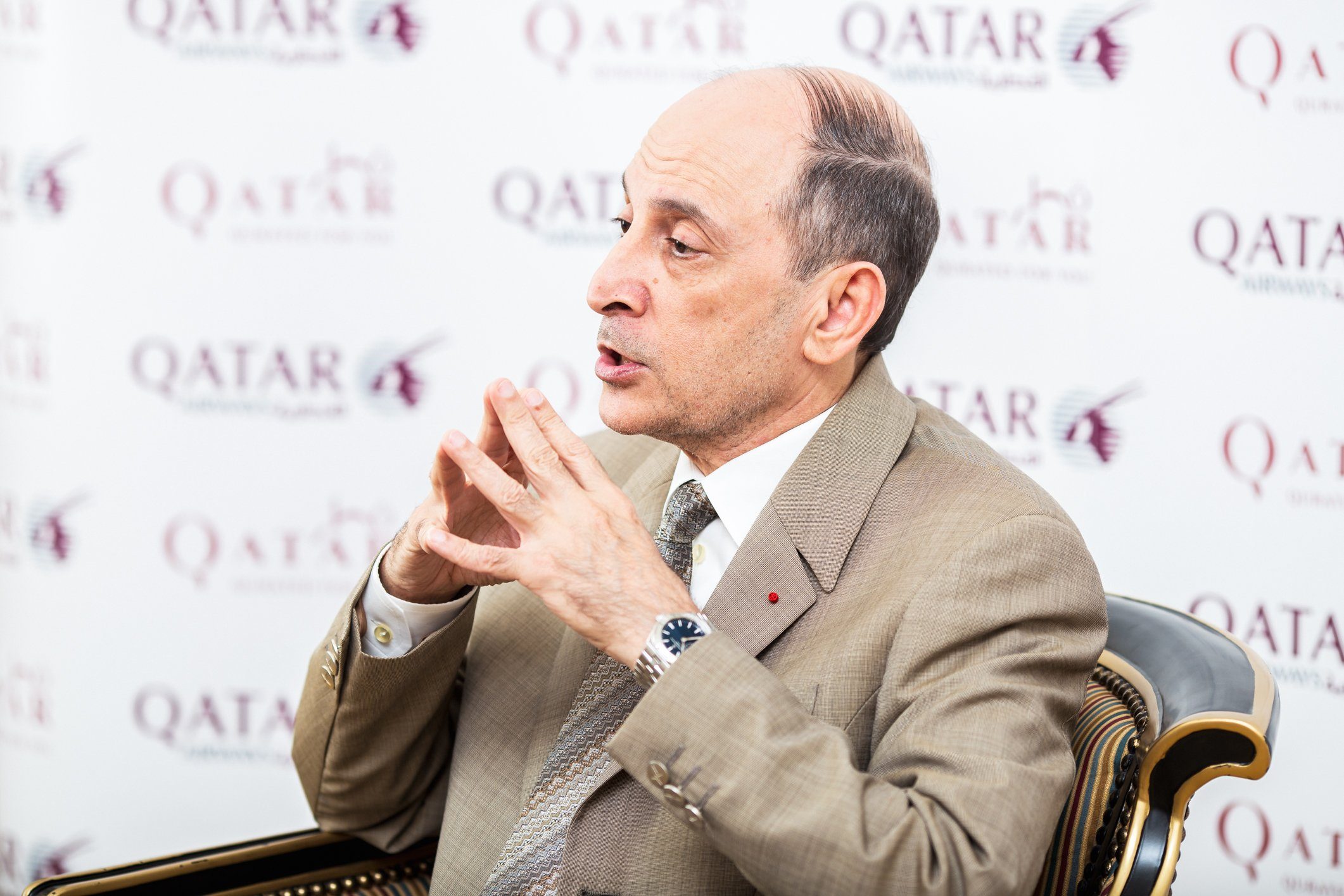The aviation industry’s ambitious target of achieving net-zero carbon emissions by 2050 has been described as an overly optimistic goal given the challenges ahead, according to Qatar Airways CEO Akbar Al Baker.
While acknowledging the significance of decarbonising the aviation sector, Al Baker believes that “that will be very difficult to achieve,” he said during an interview with CNN.
When asked about the feasibility of achieving net-zero emissions by 2050, Al Baker responded with “you know it will be way after my time so I should not try to do anything to mislead people.
“But I genuinely believe that it will be very difficult to achieve the targets by 2050 because just there is not that much will, you know 2050 is not too far away.”
Al Baker stressed that the entire aviation industry, including oil companies, must unite to contribute to the net-zero emissions goal. He voiced concern over the high cost of SAF due to the absence of mass production and supply infrastructure.
“The industry should also get involved. The oil companies need to roll up their sleeves and provide a sustainable fuel in the volumes we want and the price where the passenger will be able to afford, which is not happening.”
However, he did express his support to the development of sustainable aircraft and Qatar Airways’ commitment to investing in fuel-efficient planes. Just this week, the Doha-based airline celebrated the delivery of two Boeing 787-9 Dreamliners in a single day, seen to be a testament to the airline’s dedication to eco-friendly aviation practices.
Al Baker emphasised the vital role that sustainability plays in aviation, which spans not only fuel-efficient aircraft but also the use of sustainable materials. He highlighted the airline’s continuous efforts to optimise its fleet and integrate sustainable practices into its operations.
“I very much care about sustainability QA has today one of the youngest fleets in the world, and we keep on investing. We have nearly 150 aircraft on order, that needs to be delivered and they’re all absolutely fuel efficient. We are hugely involved in recyclable materials in the airline,” Al Baker told CNN.
“We are constantly investing in improving fuel burn on the aeroplane. But there is only so much we can do.”
The global aviation industry has set an ambitious target of achieving net-zero carbon emissions by 2050.
One significant stride towards this goal is the increasing use of sustainable aviation fuel (SAF) as a replacement for traditional kerosene-based fossil fuels in existing aircraft. SAF has the potential to reduce lifecycle carbon emissions by up to 80% when compared to conventional jet fuel, according to the International Air Transport Association (IATA).
SAF, derived from plants and waste oils, is currently blended with aviation-grade jet fuel at percentages, typically ranging from 5% to 30%, but occasionally reaching 50%.
However, there is currently no extensive production infrastructure capable of meeting the substantial SAF demands required for existing airline operations.







